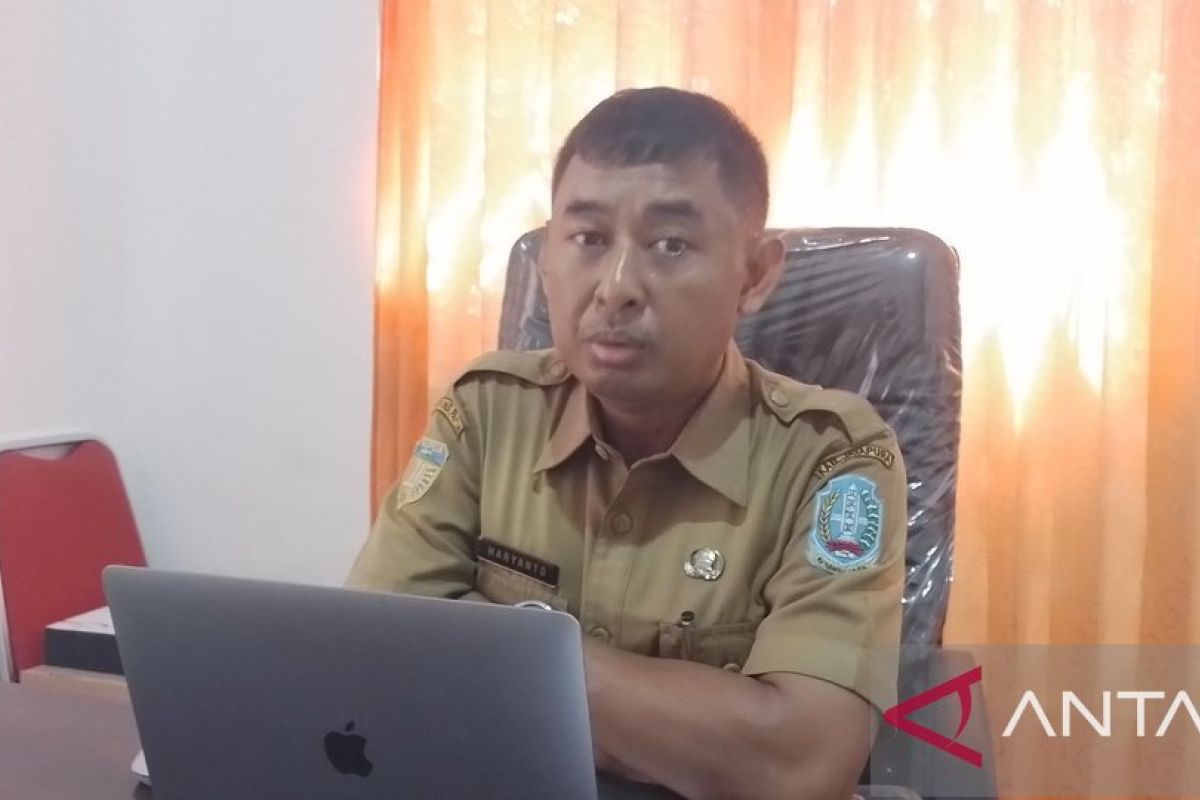The Double Standard Of Sanctions: Britain, Australia, And The Myanmar Crisis

Table of Contents
The military coup in Myanmar in February 2021 plunged the nation into a deep political and humanitarian crisis. The ensuing violence, including the widespread targeting of civilians, the imprisonment of political leaders like Aung San Suu Kyi, and the systematic suppression of dissent, has led to a devastating loss of life and a significant refugee crisis. The international community has condemned the junta's actions, but the response in terms of targeted sanctions has been uneven, fueling accusations of a double standard.
Britain's Approach to Sanctions in Myanmar
Targeted Sanctions and their Limitations
Britain has implemented targeted sanctions against Myanmar, primarily focusing on asset freezes and travel bans for key individuals and entities within the military regime. These include:
- Min Aung Hlaing: The commander-in-chief of the Tatmadaw (Myanmar military).
- Several other senior military officials: These individuals are responsible for overseeing operations resulting in human rights abuses.
- Myanmar Economic Corporation (MEC): A military-owned conglomerate involved in various sectors of the Myanmar economy.
While these sanctions aim to pressure the regime, their effectiveness remains limited. Loopholes exist, allowing sanctioned individuals and entities to utilize proxy networks and offshore accounts to circumvent restrictions. Furthermore, the impact on the military's financial capabilities has been debated, with some arguing that the sanctions have had a minimal effect on their overall operations. Critics have pointed to the lack of sanctions on key revenue-generating sectors like jade mining and timber as evidence of a less-than-robust approach.
Comparison with Sanctions on Other Nations
A comparison of Britain's sanctions against Myanmar with those imposed on other authoritarian regimes reveals potential inconsistencies. For example, the scale and scope of sanctions imposed on Russia following its invasion of Ukraine far exceed those against Myanmar, despite comparable (arguably even greater) human rights violations occurring in the latter.
- Russia: Faced with comprehensive sanctions targeting its energy sector, financial institutions, and key individuals.
- Other Countries: Similar disparities can be observed when comparing the UK's sanctions against Myanmar with those targeting other nations accused of human rights abuses or authoritarian rule, such as certain states in the Middle East or Africa. This raises concerns about the selective application of sanctions based on geopolitical considerations.
Australia's Response and its Inconsistencies
Australia's Sanctions Regime
Australia has also imposed sanctions on Myanmar, targeting individuals and entities involved in the coup and subsequent violence. These include:
- Targeted individuals: Similar to Britain's approach, Australia has focused sanctions on senior military leaders and those complicit in human rights abuses.
- Limited sectoral sanctions: While some sectors have been targeted, Australia's approach has not been as comprehensive as that of some other nations.
- International Cooperation: Australia has generally cooperated with international partners on sanctions, but the overall effectiveness remains questionable.
The scope and depth of Australia’s sanctions regime, however, are considerably less extensive compared to the actions taken against other countries facing similar situations, raising questions about the consistency of its foreign policy.
Double Standards in Foreign Policy
Australia's commitment to human rights and democracy is often underscored in its foreign policy statements. However, its relatively muted response to the Myanmar crisis, compared to its engagement in other geopolitical issues, suggests a possible double standard.
- Geopolitical priorities: Australia’s close relationship with some regional players might have influenced its approach to Myanmar, leading to a less aggressive sanction regime compared to what might be considered proportionate to the scale of the crisis.
- Economic considerations: Economic ties with Myanmar might also have played a role in shaping the intensity of the Australian sanctions.
This apparent discrepancy in Australia’s foreign policy response fuels accusations of a double standard in its commitment to upholding international norms regarding human rights and democratic values.
The Role of International Pressure and Cooperation
Effectiveness of Multilateral Sanctions
The effectiveness of sanctions against Myanmar is significantly hampered by a lack of complete international consensus and coordination. While the UN has imposed some resolutions, achieving a unified and impactful multilateral sanctions regime has proven challenging.
- Veto Power: The Security Council's veto power has been a significant impediment to stronger UN action.
- Differing National Interests: Individual nations' geopolitical interests and economic ties often influence their willingness to participate in comprehensive sanctions regimes.
Civil Society and Advocacy
Civil society organizations, human rights groups, and advocacy efforts play a crucial role in raising awareness about the Myanmar crisis and pressing for stronger action from governments. They highlight the double standard in sanctions application, demanding greater accountability and a more consistent approach.
- Fortify Rights: A leading human rights organization actively documenting abuses in Myanmar and advocating for stronger sanctions.
- Numerous other NGOs: Countless other organizations are working to document the crisis and advocate for intervention. Their efforts are instrumental in maintaining international attention and influencing policy decisions.
Conclusion: Re-evaluating Sanctions and the Myanmar Crisis
This article has highlighted the double standard in the application of sanctions regarding the Myanmar crisis, particularly focusing on the approaches of Britain and Australia. The inconsistent and often inadequate responses, when compared to actions taken against other nations facing similar situations, undermines the effectiveness of sanctions as a tool for promoting human rights and accountability. This sends a dangerous message to other authoritarian regimes, suggesting that the international community's commitment to these values is selective and contingent upon geopolitical factors.
The implications are far-reaching. The lack of robust and consistent sanctions not only allows the Myanmar military junta to continue its brutal campaign against its own people but also weakens the credibility of international efforts to promote human rights and democratic values globally.
We must demand a reevaluation of the current approach to sanctions. We must actively engage in further research, participate in advocacy campaigns, and pressure governments to adopt a more consistent and effective approach to sanctions, ending this double standard and improving the response to the Myanmar crisis and similar situations worldwide. Only through unified and decisive action can we hope to hold perpetrators accountable and prevent further suffering in Myanmar. Let us work to end the double standard of sanctions and demand justice for the people of Myanmar.

Featured Posts
-
 District Final Archbishop Bergans Victory Over Norfolk Catholic
May 13, 2025
District Final Archbishop Bergans Victory Over Norfolk Catholic
May 13, 2025 -
 Ajak Dukung Persipura Kakanwil Papua Himbau Masyarakat
May 13, 2025
Ajak Dukung Persipura Kakanwil Papua Himbau Masyarakat
May 13, 2025 -
 Kino Na Sluzhbe Otechestvu Programma Festivalya V Moskve
May 13, 2025
Kino Na Sluzhbe Otechestvu Programma Festivalya V Moskve
May 13, 2025 -
 Ayorbaba Himbau Dukungan Untuk Persipura Jayapura
May 13, 2025
Ayorbaba Himbau Dukungan Untuk Persipura Jayapura
May 13, 2025 -
 Be Realistic The Importance Of Keeping A Key Tasman Road Open
May 13, 2025
Be Realistic The Importance Of Keeping A Key Tasman Road Open
May 13, 2025
Latest Posts
-
 Ian Mc Kellen Speaks Out Against Young Actors Hiding Their Sexuality
May 13, 2025
Ian Mc Kellen Speaks Out Against Young Actors Hiding Their Sexuality
May 13, 2025 -
 The Da Vinci Code A Study Of Its Narrative Structure And Character Development
May 13, 2025
The Da Vinci Code A Study Of Its Narrative Structure And Character Development
May 13, 2025 -
 Dua Lipa Sir Ian Mc Kellen And Other Celebrities Urge Uk Prime Minister To Protect Copyright Against Ai
May 13, 2025
Dua Lipa Sir Ian Mc Kellen And Other Celebrities Urge Uk Prime Minister To Protect Copyright Against Ai
May 13, 2025 -
 Exploring The Themes Of The Da Vinci Code Religion Conspiracy And Art History
May 13, 2025
Exploring The Themes Of The Da Vinci Code Religion Conspiracy And Art History
May 13, 2025 -
 Decoding The Da Vinci Code A Literary And Historical Exploration
May 13, 2025
Decoding The Da Vinci Code A Literary And Historical Exploration
May 13, 2025
